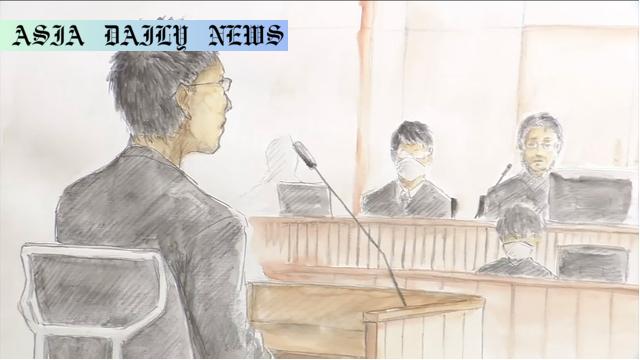Explosive Attack: Man sentenced to 10 years for targeting then Japanese Prime Minister Kishida Fumio through a deadly incident.

A Shocking Incident in Japan
A court in Wakayama Prefecture, western Japan, has sentenced a 25-year-old man, Kimura Ryuji, to 10 years in prison for throwing an explosive device near then Prime Minister Kishida Fumio. This shocking incident occurred in April 2023 when the prime minister was visiting Wakayama City for a campaign event ahead of a Lower House by-election. Although Kishida was evacuated unharmed, two individuals suffered injuries, and the event has left a lasting scar on Japan’s political and social landscape.
Legal Proceedings and Key Contentions
Kimura faced five charges, including attempted murder and violations of the Explosives Control Act. One of the most intense debates during the trial revolved around whether Kimura intended to kill the prime minister. During the proceedings, presiding Judge Fukushima Keiko emphasized that expert evaluations demonstrated the explosive’s lethal capacity. She concluded that Kimura knowingly acted with intent to kill, making this a case of attempted murder.
The Motive Behind the Crime
The court delved into Kimura’s motives, uncovering that he had launched a lawsuit against the Japanese government over the country’s election system. Kimura also vented his frustrations on social media, albeit without gaining significant attention. In an act of desperation to amplify his message, he plotted a highly publicized attack, targeting a symbolic figure—then Prime Minister Kishida.
Impact on Society and Democracy
Beyond the physical damage caused, the court noted the broader ramifications of the attack. Presiding Judge Fukushima highlighted the anxiety and fear instilled in the public. The targeting of a sitting prime minister was seen as a direct attack on the foundations of democracy, shaking the public’s confidence in the electoral and democratic systems. The court determined that such acts must be met with severe consequences to deter similar crimes in the future.
A Call for Stringent Punishment
While delivering the verdict, Judge Fukushima underlined the need for a harsh penalty to prevent copycat crimes. The premeditated nature of Kimura’s act and its disruptive impact on Japan’s political processes were critical factors in the sentencing. By doing so, the court aimed to reinforce the integrity of Japan’s democratic framework and send a clear message of zero tolerance toward politically motivated violence.
In conclusion, this case underscores the importance of safeguarding democratic institutions and ensuring that individuals resort to lawful, peaceful means to voice their grievances. It serves as a sobering reminder of the consequences of escalating individual frustrations into dangerous actions.
Commentary
The Fragile State of Political Safety
The recent sentencing of Kimura Ryuji for his attack targeting then Prime Minister Kishida Fumio invites us to reflect on the challenges surrounding political safety and rising tensions in public discourse. While democracy is built on the freedom of speech and the right to dissent, acts of violence undermine those very ideals. This case is not just a legal event but a grim reminder of how frustration and lack of communication can lead to systemic disruptions.
The Weight of Responsibility
The presiding judge made a robust point by emphasizing the need for stringent measures to deter similar crimes. Striking a public official, especially a prime minister, carries symbolic weight, sending ripples throughout society. It is imperative that such acts are met with uncompromising justice to ensure stability and public confidence in the democratic fabric of a nation. A 10-year sentence not only punishes the individual but also reinforces a societal standard against political violence.
The Importance of Dialogue
Kimura’s actions stem from a frustration over laws and policies he deemed unjust, yet they escalated due to his inability to garner attention to his grievances. This highlights the importance of establishing accessible communication channels between governments and citizens. By fostering dialogue and listening to concerns, societies can potentially prevent disaffection from spiraling into violence. While the attack was heinous, it speaks volumes about the need for governments worldwide to address grassroots discontent more effectively.
The Wakayama court’s decision marks a pivotal moment in reminding society of the destructive impact of violence. While justice has been served, it is essential to delve deeper into the root causes of such incidents to ensure they do not define the political landscape of the future.


